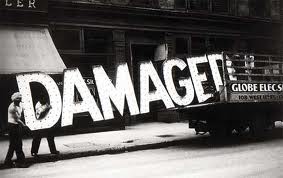OCC’s Independent Foreclosure Review for Homeowners is Ready – But, so are the Scammers
The OCC has announced the rules and program details for its much anticipated Independent Foreclosure Review process for homeowners. And that’s very good for homeowners. But, I’m fully expecting that right along side the launch of the OCC’s process, the SCAMMERS will be popping up everywhere.
But, before we look at the details of the OCC’s process so you can know if it’s something you should be involved in… the first piece of advice I’m going to offer is…
WATCH OUT! DON’T DO ANYTHING IN A HURRY! THERE IS NO RUSH!
Okay, homeowners… I usually don’t say things like this but… PLEASE, PAY ATTENTION! If you chose to ignore this article, you do so at your own peril.
What’s going at the OCC? And why homeowners should know about it.
First of all, if any of this sounds familiar it could be because this is the same program I wrote about last April, and again last May, and then again last July. And, basically I criticized what was planned because it was so totally transparent… if by “transparent” you meant “hidden.” And in that respect, the program hasn’t changed one iota.
Well, two pillars of transparency, the Financial Services Roundtable’s Housing Policy Council and the Hope Now Banking Alliance (okay, so the “banking” doesn’t really belong in their name, but it sort of does), held a conference call yesterday afternoon for Housing Counseling network partners and other not-for-profit organizations around the country and one of the housing counselors who participated in the call echoed my thoughts from last May, saying that there is currently no transparency into who the “independent” third party reviewers are, and no disclosure as to what their review process will entail. So, very well done there.
“We were told that the Servicers selected the independent reviewers and will be paying them. There is no definition of “harm” nor is there a definition of “remedy.” There is also no consistent process across servicers regarding their review process that was evident. But then again, the entire review process was not disclosed.”
On an entirely unrelated note, and I’m sorry for jumping around like this, but remember about a month ago when all that Occupy Wall Street stuff was first showing up on television news? Well, if I remember correctly, there was a whole gaggle of talking heads acting kind of superior and questioning why the group was protesting and what their goals were? Remember that?
Well, I thought I’d just take a minute and say something to those folks who were struggling trying to figure out why Occupy Wall Street is protesting:
Hey, morons… read the paragraph above. That’s why they’re protesting and their goal is to prevent bullshit like this OCC policy of total secrecy from happening anymore. Any questions, morons?
You know, the OCC is a government agency. It’s not supposed to even be allowed to do shit like this. They’re not a private company… and the bankers they’re always blowing shouldn’t even be open for business because they’re completely insolvent and continue to remain alive only because they are on a combination of taxpayer funded life support, debt guarantees, and suspended accounting rule nonsense sanctioned by the king of transparency himself… the man who, more than any other I can think of, should be in a cell… Treasury Secretary Tim “Transparency” Geithner.
One more thing just to make sure that no one misses the irony here… the mortgage servicers whose bad acts and criminal behavior against 4.5 MILLION American homeowners rose to such an unacceptable level that they have been forced to participate in this “independent foreclosure review,” are the ones saying that we’re not allowed to know anything about it.
And… can we just talk about the word “independent” for just a second? I mean, I know the word “transparent” is way beyond the vocabulary of these people, and now I find out “independent” is as well. So, I’m think maybe that’s why we’re having the problems we’re having with servicers… we need to use much smaller words. Okay, so how about these two words: F… oh, never mind.
So, what the heck was I writing about here… oh yeah…
This past September 19th, John Walsh, the acting Comptroller of the Currency announced that the Office of the Comptroller of the Currency (“OCC”) would be conducting an independent review of something like 4.5 million mortgages… and that borrowers would be able to add their situations to that review process, and if it were determined that the borrower was in fact wronged and damaged… the borrower would be “entitled” to something referred to as “remediation.”
“Entitled” sounds good. It’s about time homeowners are entitled to something. And, as to remediation? Yeah, I had to look it up too. It comes from the word “remedial.” A synonym would be “corrective,” or, “curative,” so it means that it’s determined that something was done badly, then that something is supposed to get fixed through this process. All around, I’d have to say that I’m optimistic that it’s good news for homeowners, believe it or not.
The bottom-line is that this does appear to be a chance for people who were treated unfairly as part of the foreclosure process (and Lord knows there are plenty who fall into that category) to get a shot at some justice, and potentially be compensated for losses resulting from the unfair treatment. And you’ve got to figure that they have to do something in response to the complaints filed, right? I would think so.
So, that’s a big deal, and it looks to me like it’s a one-time offer. Once the OCC shuts the window on this process next April 30, 2012, if you want to recover damages from your servicer for the way they treated you as related to the foreclosure process, you’ll have to sue them on your own, and we should all know how much fun that is.
How the OCC “fixes” whatever is found to have been wrong is going to be dependent on whether the borrower was “financially injured,” which is another way of saying “damaged,” by whatever wrongly occurred. Please believe me when I tell you that this is NOT going to be an easy or simple part of this process, and I’ll talk more about that, towards the end of this article.
So, if you feel that you were wronged and damaged in the foreclosure process, read on because assuming your situation fits in with the rules of the OCC’s process… it’s time for you to take action.
A Double Edged Sword…
So, yesterday the OCC announced the rules and program details for its Independent Foreclosure Review and that means two things for sure:
Homeowners that meet the eligibility criteria and whose situation and resulting financial damages are deemed to rise to the appropriate, while undisclosed level, can now file a “Request for Review” form with the OCC for potential remediation.
~~~
Scammers, con artists and other unethical providers of useless crap at exorbitant cost are going to be having a field day. Thousands of homeowners are all but certain to get ripped off for thousands of dollars and right before the holidays too. It makes you feel all warm and nauseous inside, doesn’t it?
In a moment I’ll try to help you get your arms around the program’s criteria and try to give you some ideas on what you need to know to file your “Request for Review,” but first let me tell you what NOT to do.
A. Don’t RUSH into anything. You’ve got until April 30th, 2012 to file your Request for Review with the OCC, and that’s plenty of time. The fastest way to get scammed is to do things fast.
Besides, government programs are never ready at their outset, so being first could actually be a disadvantage, if anything. The OCC’s own documentation says: “Because the review process will examine many details and documents, the review could take several months.” So, take your time, and do it right.
B. What if you do nothing now?
If you do nothing now, but are found to be eligible by the OCC, they say you’ll receive a letter before the end of this year notifying you of your eligibility, and you’ll still have until the end of April to file your request, but I have to tell you that I think waiting is a bad idea.
If you believe you were wronged in the foreclosure process, and you fit in with the requirements, then I don’t think that you should wait for the OCC’s promised letter… take control, take action, start preparing your case NOW.
C. Familiarize yourself with the program. Learn all about the OCC’s criteria for eligibility, what is eligible for remediation, and their definitions of financial damages. Know what the OCC considers a “foreclosure action,” and familiarize yourself with the examples of the actions that are included in the Independent Foreclosure Review. And don’t forget to make sure your servicer is on the list… there’s a copy of the list below.
By becoming familiar with the program’s requirements, which is not hard by the way, you’ll gain some real advantages. For one thing, you’ll know if someone’s telling you something that isn’t true. And for another, you’ll have much better idea as to why you think you qualify and that will help you decide whether or not you think you can handle submitting your claim on your own, or whether you think you need help.
D. There is no “right” or “wrong” answer to the question of whether you need a lawyer to help you prepare your complaint, and if anyone tells you otherwise, please feel free to refer him or her to me.
If you decide you need the assistance of an attorney, please be very careful. Don’t hire the first person you talk to, don’t hire someone because they said what you wanted to hear, and don’t go clicking around on-line to unfamiliar Websites. Be careful, the scammers will be out in droves, I’m certain of it.
No one can know for sure what this Independent Foreclosure Review will produce in terms of results because it’s brand new, and each case is different. So, don’t buy into “experts” look for experience… lawyers who have filed too many complaints to remember them all. Check their record with the California State Bar. And ask all of your questions. The only silly question is the one you don’t ask.
The good news about the OCC’s Independent Foreclosure Review process is that it DOES NOT AFFECT anything else that you’re currently doing, so if you’re in the middle of applying for a loan modification with your servicer, or in litigation against your servicer, or even if you’re currently in bankruptcy, you can still file a “Request for Review” form with the OCC.
(A NOTE ABOUT BANKRUPTCY: If you’re in bankruptcy, however, be sure to take the firm to your attorney, DO NOT FILE your “Request for Review” on your own.)
Requirements and Guidelines for Homeowners filing a Request for Review…
Okay, so here are some of the things you need to know before you get started filing your “Request for Review” form with the OCC, in order to be considered as part of their Independent Foreclosure Review process.
- You have to have been part of a “foreclosure action” on your PRIMARY RESIDENCE between January 1, 2009 and December 31, 2010.
- What is a “foreclosure action?” It’s one of the following four situations:
- You lost your home to foreclosure, and its been sold by the trustee.
- You were in foreclosure, but either because you brought the payments current, entered some sort of payment/forbearance plan, applied for a loan modification, or filed bankruptcy, it was pulled out of foreclosure.
- You were in foreclosure, but were able to sell the home via short sale, or chose to deed-in-lieu to avoid actually losing home to foreclosure.
- You’re in foreclosure now and you’re still delinquent, but no foreclosure sale has happened yet.
- Here’s the list of participating servicers:
- America’s Servicing Co.
- Aurora Loan Services
- Bank of America
- Beneficial
- Chase
- Citibank
- CitiFinancial
- CitiMortgage
- Countrywide
- EMC
- EverBank/EverHome Mortgage Company
- GMAC Mortgage
- HFC
- HSBC
- IndyMac Mortgage Services
- MetLife Bank
- National City Mortgage
- PNC Mortgage
- Sovereign Bank
- SunTrust Mortgage
- U.S. Bank
- Wachovia Mortgage
- Washington Mutual (WaMu)
- Wells Fargo Bank, N.A.
Examples of financial injury…
The OCC lists examples of financial injury as a result of “errors, misrepresentations, or other deficiencies in the foreclosure process,” but they also state clearly that IT IS BY NO MEANS MEANT TO BE A COMPLETE LIST. It’s really more like general guidance or a starter list of examples than anything else.
Also, it seems clear that the OCC only put things on this list that were fairly shallow or easy to come up with… things like dual tracking, which is when a servicer forecloses on a borrower while that borrower is in the middle of applying for a modification or making trial payments… along with accounting discrepancies, or violations of the Servicemembers Civil Relief Act.
It makes sense, if you think about it. After all the OCC isn’t really here to help homeowners prevail… they’re only facilitating the independent review process. It’s up to the homeowners who file to present their cases properly.
So, in point of fact, there could exist any number of other “errors, misrepresentations, or other deficiencies in the foreclosure process,” that could have caused homeowners to be financially damaged.
Here’s what’s on the OCC’s list…
- The mortgage balance amount at the time of the foreclosure action was more than you actually owed.
This one is kind of weird, in my mind, because I’m not sure how homeowners will know if this was the case, but if you do think this was the case then you obviously have the information… well, fair enough.
- You were doing everything the modification agreement required, but the foreclosure sale still happened.
This should be on the Servicer’s Greatest Hits CD, if they ever do one… it’s the hit single, “Dual Tracking.” If you were foreclosed on while making your trial payments, this one’s for you.
- The foreclosure action occurred while you were protected by bankruptcy.
Also very straightforward… if this happened to you, you’re on.
- You requested a modification, submitted complete documents on time, and were waiting for a decision when the foreclosure sale occurred.
More dual tracking, and this happened to many, many people.
- Fees charged or mortgage payments were inaccurately calculated, processed, or applied.
If you have evidence of this, it’s really a yes or no sort of thing.
- The foreclosure action occurred on a mortgage that was obtained before active duty military service began and while on active duty, or within 9 months after the active duty ended and the servicemember did not waive his/her rights under the Servicemembers Civil Relief Act.
Again, very straight forward… and you know if it applies to you.
A few words about financial injury…
Okay, everyone who reads me knows that I’m definitely NOT A LAWYER… I mean… you’re reading this right now. Does it read like a lawyer wrote it? Exactly. And, thank you for saying so.
But, I do know what sometimes seems like about a zillion of them and I pay attention. And I can read like the dickens. I’m not kidding, ask my parents, they’ll tell you. So, listen to what I’m going to tell you here… it’s about financial injury or in other words, “damages.”
Determining how you were damaged or financially injured is not going to be nearly as easy as you might think. It’s not “Common Sense Court,” we’re talking about here… we’re talking about lawyers at the OCC… banking lawyers… the worst kind.
The idea is that damages are supposed to measure in monetary terms, the extent of the harm that a plaintiff (as in, you the homeowner) has suffered because of a defendant’s (as in, your servicer’s) actions, and their purpose is to restore the injured party to the position they were in before the harm happened.
In general, you should think about damages as being restoring what you lost… as opposed to being punitive, because although punitive damages may be awarded in certain situations, this is not one of them. In fact, remember… this isn’t like you’re going to court… you’ll be submitting your Request for Review to the OCC.
There are three basic categories of damages. The first is termed compensatory damages, which are awarded to restore what the plaintiff lost as a result of the defendant’s wrongful conduct. Next, there are nominal damages… a small sum awarded when someone has not suffered any substantial loss, but has been wronged nonetheless. And then there are punitive damages, which are awarded under certain circumstances to punish a defendant for particularly egregious, wrongful conduct.
But, for the purposes of filing your Request for Review with the OCC, you need to think about how your servicer’s acts directly caused you harm… and by harm, I mean financial harm.
Whenever the topic of “damages” comes up, I often hear homeowners mention the idea of mental pain and suffering. Now, there’s no question that this type of suffering is involved here, as it includes fright, nervousness, grief, emotional trauma, anxiety, humiliation, and indignity… and I think it’s safe to say that homeowners in foreclosures have all those things, and probably a few more.
On the Website, Law.com, they talk about “emotional distress damages,” as follows:
Evidentiary problems include the fact that such distress is easily feigned or exaggerated, and professional testimony by a therapist or psychiatrist may be required to validate the existence and depth of the distress and place a dollar value upon it.
But, you have to remember, we’re not talking about a court of law here, we’re talking about the OCC, so you need to concentrate primarily on how you were damaged tangibly, like in dollars and sense, which may be hard to do when the home you lost to foreclosure, or may lose to foreclosure, has no equity.
You see, as far as damages for losses to real property goes, it looks to me like they could measure financial injury related to real property by assessing the difference in the fair market value of the property before and after the injury. Not only that, but it also seems that diminished fair market value is not used as the measure of recovery, if the financial injury to real property is temporary in nature.
Now, I have no idea whether any of this makes any difference to the OCC, but I do know this: damages or financial injuries are subject to numerous limitations and legal definitions, so it seems to me that most people are going to need a lawyer to help them figure “financially injury” component out.
I’m not saying that it’s an insurmountable issue, but since the OCC has not provided any real guidance in this area, and since the OCC’s process does not offer any sort of appeals process should you be denied, you probably want to at least consult with an experienced attorney before filing.
All hung up on titles…
Within the OCC’s consent orders, which you’ll find links to below, are listed the “bad acts” of which the respective mortgage servicers stand accused, and by reading through them you’ll find many of the things that have made the news this past year having to do with improper foreclosures, including “robo-signing (although it’s not called “robo-signing in the consent orders, it’s called something like “unauthorized signing of affidavits, or something close), improper notarization, dual tracking, and a whole host of other things that fall under the umbrella of “unsafe and unsound banking practices.”
The general idea is to find out which things appear on your servicer’s consent decree, and match up the things that happened to you, and how you were damaged by those things. And it may be that in order to do that, you’ll need to look at your Chain of Title documents.
I’m looking into this issue to find out exactly what you’ll need, if anything, so as I said just stand by… like I said in the beginning, there’s nothing gained by rushing.
In Conclusion…
The OCC says that, as it relates to borrowers, it’s driving this Independent Foreclosure Process for the following reasons:
- Weaknesses in foreclosure processes and controls present the risk of foreclosing with inaccurate documentation, or foreclosing when another intervening circumstance should intercede.
- Even if a foreclosure action can be completed properly, deficiencies can result (and have resulted) in violations of state foreclosure laws designed to protect consumers.
- Such weaknesses may also result in inaccurate fees and charges assessed against the borrower or property, which may make it more difficult for borrowers to bring their loans current.
- In addition, borrowers can find their loss-mitigation options curtailed because of dual-track processes that result in foreclosures even when a borrower has been approved for a loan modification.
- The risks presented by weaknesses in foreclosure processes are more acute when those processes are aimed at speed and quantity instead of quality and accuracy.
Here are links to the various OCC Consent Orders, but check with the OCC if yours isn’t on this list, as it may not have been updated.
- Consent Order for Aurora Bank, FSB (PDF)
- Consent Order for Bank of America (PDF)
- Consent Order for Citibank (PDF)
- Consent Orders for EverBank and EverBank Financial Corp. (PDF)
- Consent Order for HSBC Bank (PDF)
- Consent Order for JPMorgan Chase Bank, N.A. (PDF)
- Consent Order for LPS; DocX, LLC; and LPD Default Solutions, Inc. (PDF)
- Consent Order for MetLife Bank, N.A. (PDF)
- Consent Order for MERSCORP and Mortgage Electronic Registration Systems, Inc. (MERS) (PDF)
- Consent Orders for OneWest Bank, FSB and IMB HoldCo LLC (PDF)
- Consent Order for PNC Bank, N.A. (PDF)
- Consent Order for Sovereign Bank (PDF)
- Consent Order for U.S. Bank National Association, U.S. Bank National Association ND (PDF)
- Consent Order for Wells Fargo Bank, N.A. (PDF)
Homeowners can also visit www.IndependentForeclosureReview.com for more information, and the OCC says that assistance with forms and answers to questions about the process are available at 1-888-952-9105, Monday through Friday from 8 a.m. to 10 p.m. (ET) and on Saturday from 8 a.m. to 5 p.m. (ET). And here’s a link to the FAQ about the new review process.
To be entirely candid, they don’t really have much information… they can answer 49 questions, but after that, forget it. I wasn’t surprised though, the whole thing is new, and I’ve never learned much of anything by calling a government phone number.
So, stay tuned… I’m going to be providing a lot more information on what you need to know and do related to filing a Request for Review to the OCC as part of the Independent Foreclosure process in the days and weeks to come. I’ll even be offering a Webinar for those looking to drill down deeper into how to package your complaint.
So, hang on… don’t buy anything from anyone you don’t know… it’s still early, and much too early to get scammed into buying some hokey report or forensic loan audit… those things are giant scams for the most part… and you don’t need them to file your OCC complaint. Whatever tools you do need, I’ll find them and make available.
And, please… be careful out there…
Mandelman out.
Here’s a copy of the OCC’s Interagency Review of Foreclosure Policies and Practices… Go to town!
###
*1 (Rest.2d §352; Cal.Civ.Code §3301.)
*2 (McDonald v. John P. Scripps Newspaper (1989) 210 CA3d 100, 104.)
*3 (Rest.2d §353.)
*4 (Rockingham Cty. v. Luten Bridge Co. 35 F.2d 301 (4th Cir. 1929); Rest.2d §350)
*5 (Hadley v. Baxendale. 9 Exch. 341(1854).) ; Rest.2d 351.)
*6 (Cal.Civ.Code §3358.)
*7 (Cal.Civ.Code § 3294)
*8 (BMW of North America, Inc. v. Gore U.S. (1996)









